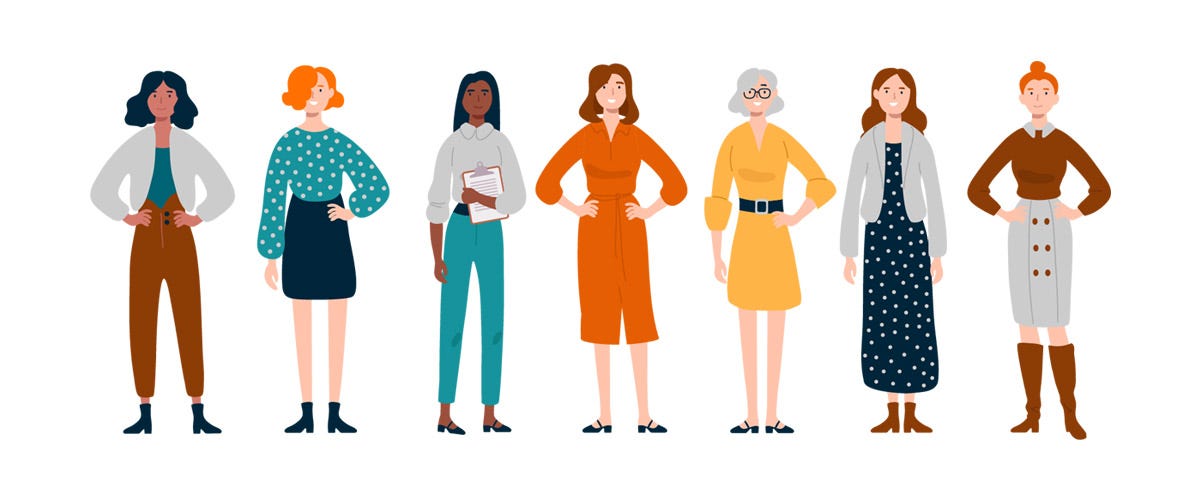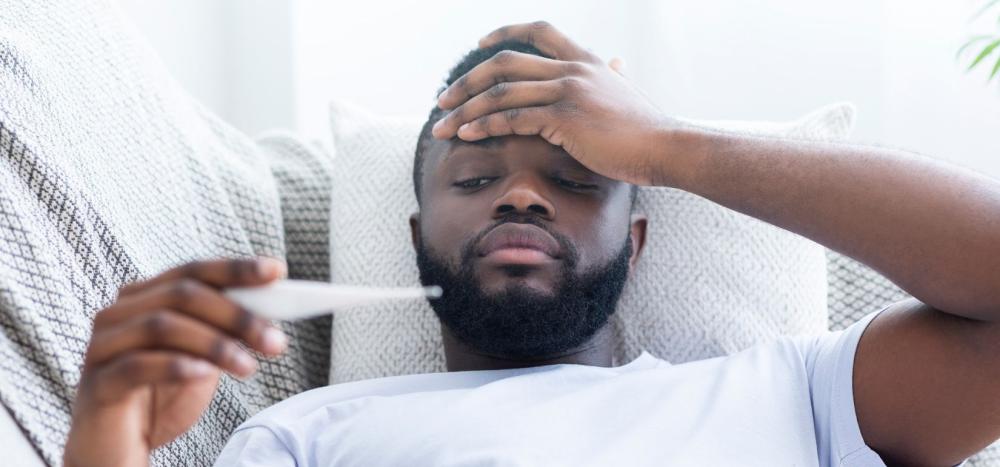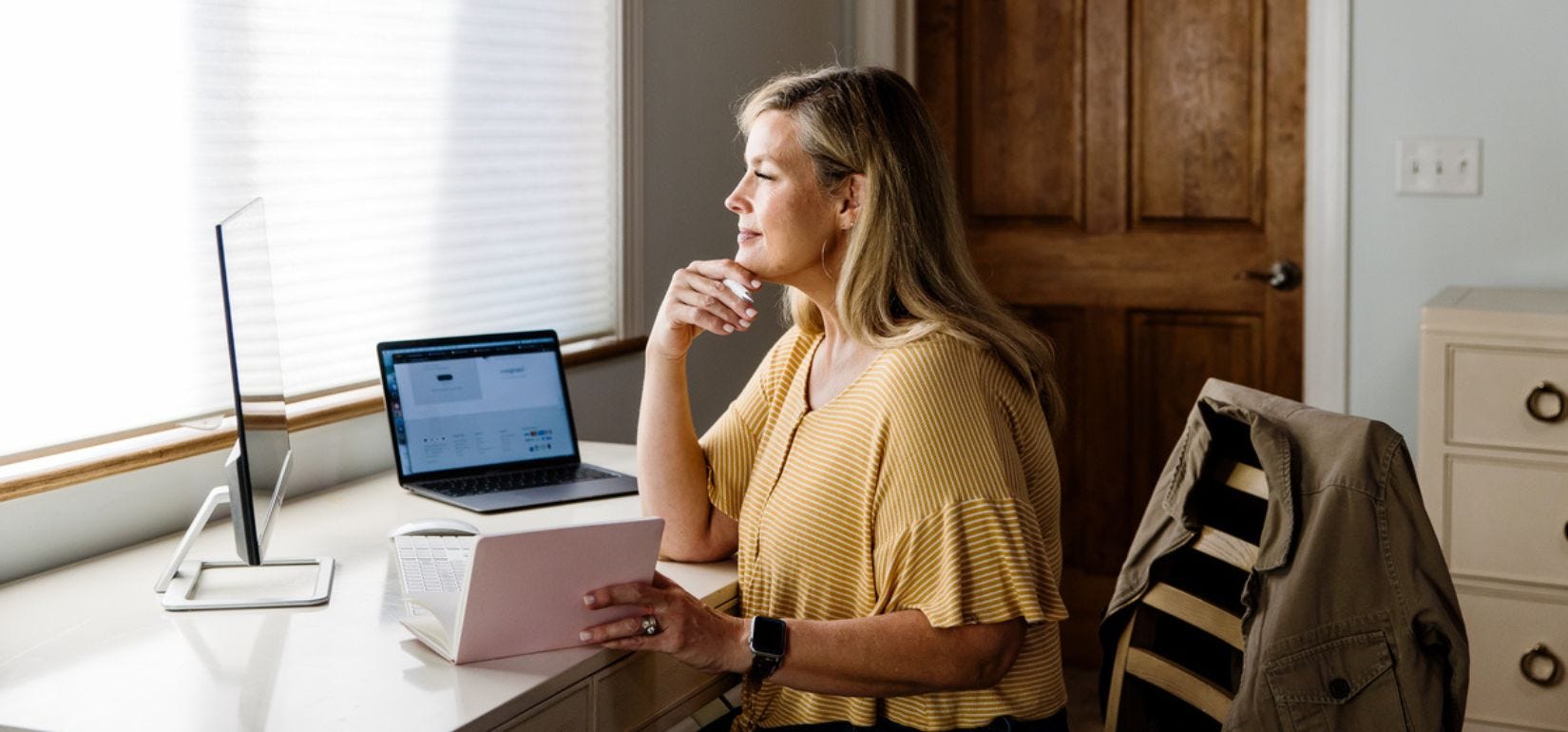Talking about menopause with girlfriends is often commonplace among older women.
Joking about hot flashes and the room's temperature, discussing mood swings, and even sending memes to friends that make light of the issue are often the norms we see.
But there’s one thing no woman ever seems to want to talk about: Incontinence.
Incontinence, or the loss of bladder control, is a significant part of many women’s lives.
Aeroflow Urology recently polled over 1,000 women aged 40-64 and found that 72% of them experience incontinence.
Other studies have found that 65% of women experience bladder leakage at least once a month, and 25% experience it daily.
While you may not realize it, if you’ve experienced bladder leakage, you are a part of this large group of women who have.
Why Don't Women Talk About Incontinence?
Check Your Eligibility
2 Easy Steps
Discover the continence care essentials available through your Medicaid plan.
So why are we not talking about incontinence when it comes to women’s health issues?
Women often suffer in silence, as prevalent as bladder leakage is in midlife.
The stigma of bladder leakage has 52% of midlife women trying to hide their loss of bladder control, and 42% of these women have been too embarrassed to discuss this issue with their close friends and family when chances are they’re experiencing it.
Unfortunately, it's easy to feel alone when facing continence care problems.
The same study from Aeroflow Urology showed that over half (56%) of women aged 40-64 stated that they did not see a doctor after experiencing bladder loss.
37% of those women reported that they did not seek medical help because they did not have any education on the subject and thought it was “no big deal.”
However, anything that affects your health is a big deal, especially if it affects your day-to-day living. And while incontinence is prevalent, it’s not normal.
While the stigma associated with bladder control issues tells us to be embarrassed and ashamed, we need to facilitate conversations about life with incontinence. In addition, women should know that symptoms of bladder leakage should not be overlooked.
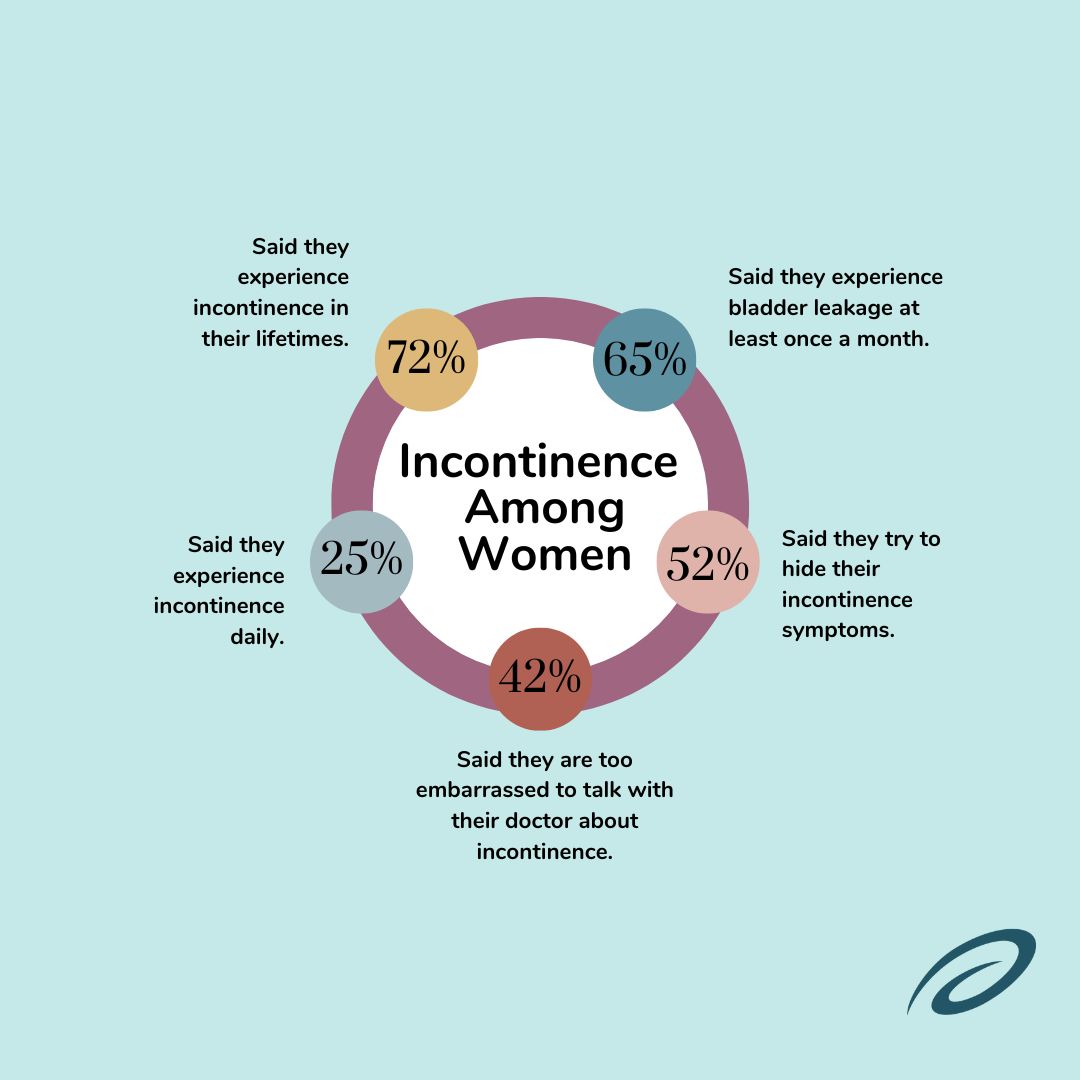

About Incontinence
Urinary incontinence is described as a loss of bladder control, which usually leads to urine leakage. There are multiple types of urinary incontinence women can experience. Each type of incontinence is different, but the same things generally cause them:
- Aging
- Nerve damage.
- Pelvic surgeries, such as a hysterectomy.
- Pelvic floor damage.
- Certain medications.
- Certain things in your genetics or medical history, such as a pelvic organ prolapse (POP).
- Urinary tract infections (UTIs).
- Bladder irritants.
- Obesity
- Certain medical conditions or disabilities, such as diuretics, Multiple sclerosis, or Parkinson’s disease.
Types of Incontinence
Types of urinary incontinence include:
Stress urinary incontinence (SUI): When you have SUI, you experience urine leakage when extra pressure is put on your pelvic area or bladder. This usually happens when you sneeze, cough, laugh, exercise, or lift heavy objects. Leakage is typically due to a weak urinary sphincter, urethra, or bladder muscles.
Overactive bladder (OAB): The side effects of OAB are frequent urination (more than 8 times a day or night) and the feeling of needing to void your bladder more often than usual.


Overflow incontinence: Overflow incontinence is pretty straightforward. You experience an “overflow” of small amounts of urine because your bladder cannot empty completely when you void your bladder. You may also experience dribbling urine throughout the day.
Urge incontinence: This type of incontinence is similar to OAB; You may feel the sudden and urgent need to void your bladder, leading to an involuntary loss of urine.
If left unaddressed, lower urinary tract and bladder control problems, such as bladder leakage, can affect your finances over time due to interferences with work or education. If you experience bladder leakage, know that you are not alone, and please reach out to a member of your health care team to help you navigate this midlife issue.
You may also be eligible to receive free incontinence supplies through your Medicaid or other insurance plans with Aeroflow Urology.
My Story
I know firsthand the embarrassment and stigma of dealing with bladder issues. I started experiencing bladder issues at age 28 when I was diagnosed with painful bladder syndrome, which also included overactive bladder (OAB).
OAB makes it challenging to retain your quality of life, like attending long celebrations, such as graduations or weddings. Time at these events is often spent figuring out bathroom breaks so as not to miss anything important while gone.
OAB even affects simple everyday activities like running errands or exercising. For example, one trip to the grocery store is interrupted with at least 2 to 3 visits to the bathroom, meaning there is no such thing as a “quick errand.”
It can even interfere with shorter excursions like dinner and a movie or a sporting event. I remember cringing every time my husband said we had to attend one of his business dinners. I knew it would mean getting up and down repeatedly from the table and politely leaving during a break in conversation with his colleagues.
Managing Incontinence Symptoms
A dysfunctional urinary system can interrupt your quality of life and take away from your ability to enjoy certain activities, but you don’t have to suffer in silence. The prevalence of incontinence among women should be talked about so we may find better ways to manage our symptoms.
It’s time to break the norm, so talk to your primary care provider or a urologist about treatment options for your incontinence, and use these tips to manage symptoms.
1. Talk to Your Healthcare Provider
A healthcare professional will be able to diagnose which type of incontinence you’re experiencing and help you manage the symptoms.
2. Use Incontinence Products
Incontinence products, such as adult briefs or Poise pads, may help you manage incontinence symptoms. Aeroflow Urology can provide free incontinence supplies if you qualify. To find out if you are eligible, fill out our eligibility form.
3. Try Medications
Certain medications, such as anticholinergics, may help treat your incontinence symptoms.
4. Use A Bladder Diary
Bladder diaries can help you keep track of your incontinence symptoms and may come in handy when attempting to identify which type of incontinence you’re experiencing.
5. Make Lifestyle Changes
Interventions such as eating a healthy diet, drinking enough fluids, cutting out bladder irritants, quitting smoking, and exercising can improve your incontinence symptoms or help prevent incontinence in some cases.
6. Try Pelvic Floor Exercises
Pelvic floor exercises that work your pelvic floor, such as Kegel exercises, may significantly improve your incontinence symptoms by strengthening the pelvic and bladder muscles. You can do these exercises at home or see a pelvic floor therapist.
How Aeroflow Urology Can Help You
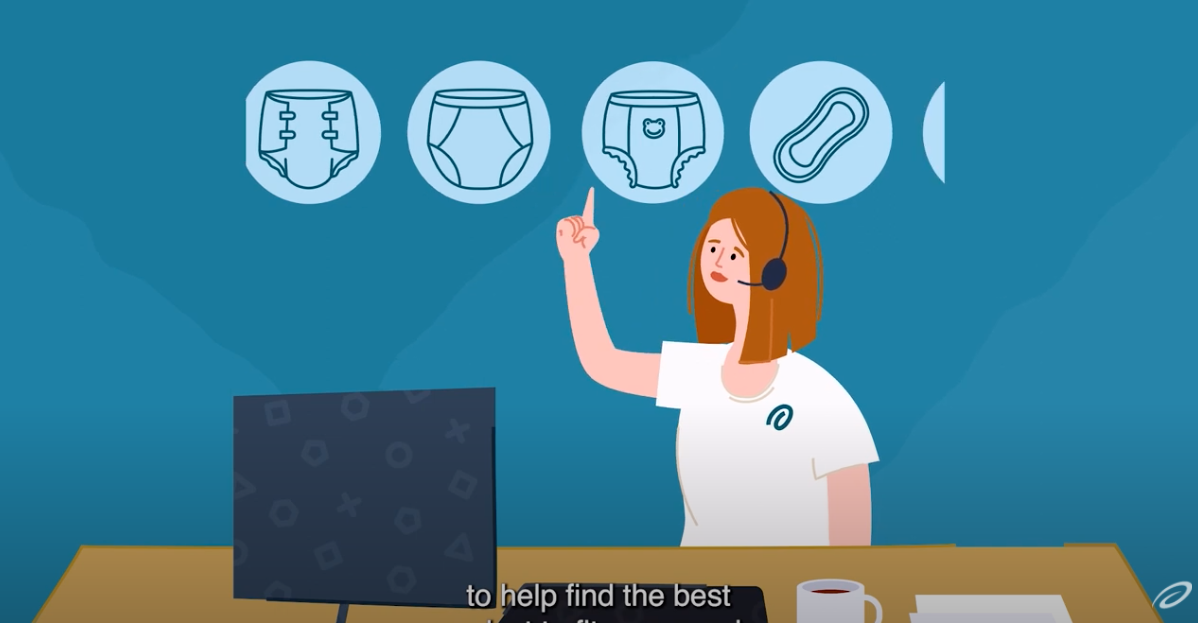
If you’re one of the many women that suffer from incontinence symptoms, Aeroflow Urology may be able to help you by supplying you with free incontinence supplies through your Medicaid or private insurance plan.
Follow these steps to see if you qualify.
- Fill out our eligibility form.
- If approved, one of our Continence Care Specialists will fill out all of the necessary paperwork needed by your doctor. They’ll also help you find the right products for your lifestyle and symptoms and give you a curated shopping list to choose incontinence supplies from.
- After choosing your products, they’ll be shipped right to your front door in discreet packaging, so you no longer need to run to the store for supplies. We’ll also send you monthly text or email reminders when it’s time to resupply so you won’t run out of products.
Information provided on the Aeroflow Urology blog is not intended as a substitute for medical advice or care from a healthcare professional. Aeroflow recommends consulting your healthcare provider if you are experiencing medical issues relating to incontinence.



